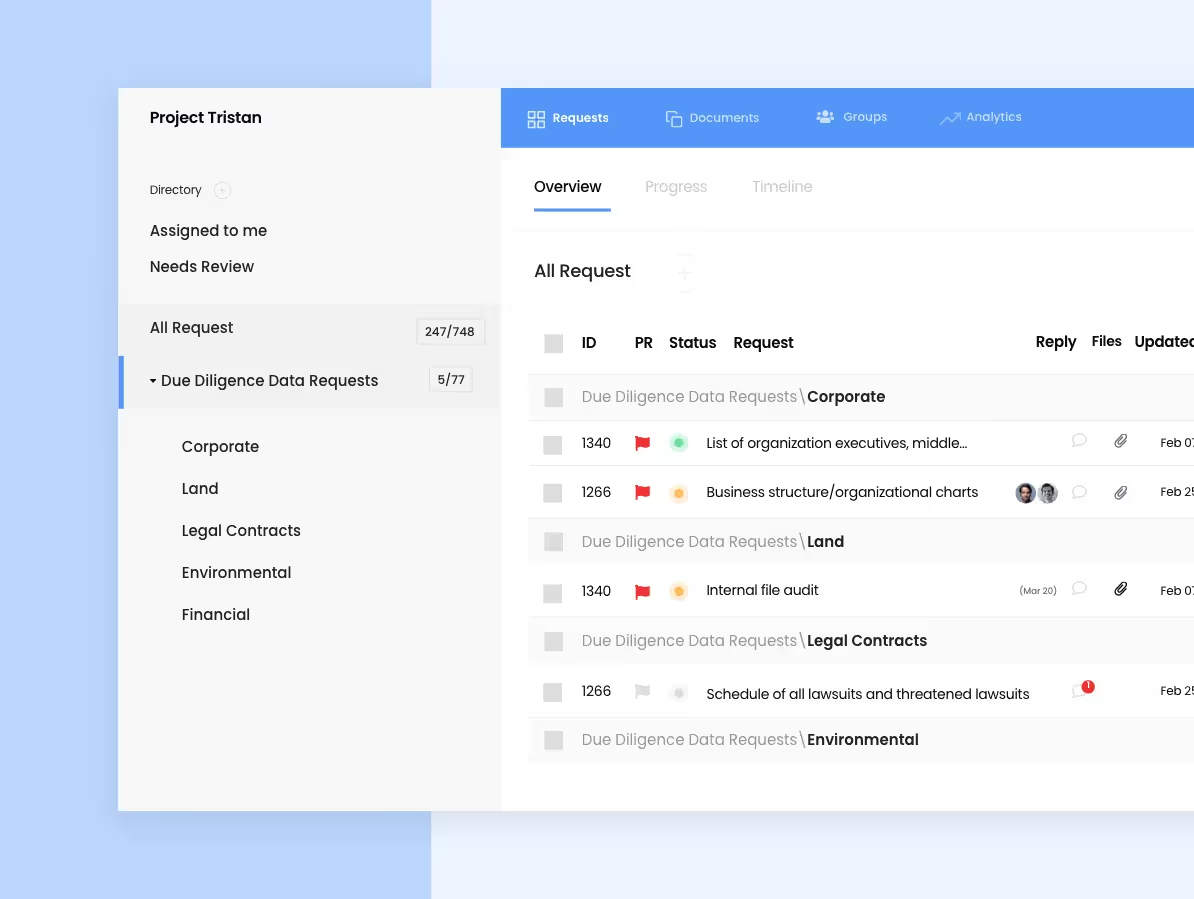Oil and Gas Due Diligence Playbook
Power through your next transaction with our Oil and Gas due diligence template. Our playbook collects the documents necessary to determine if the target’s operations and environmental factors are up to standard. Book a playbook demo to explore — schedule a call with us and we will reach out to help you get started.
- Industry-specific checklist
Built for upstream, midstream and downstream energy deals—covering assets, reserves, regulatory exposures and operational risk unique to oil & gas transactions. - Comprehensive asset review
From well logs and field production histories to pipeline integrity and environmental compliance, this checklist helps you capture critical data and uncover value drivers. - Collaborative due-diligence platform
Invite internal and external teams—finance, technical, legal—to work in one shared workspace where you assign tasks, attach documents and monitor progress in real time. - Seamless deal-to-integration hand-off
Once diligence is complete, your tracking and analytics can transition smoothly into execution and integration phases—saving time and avoiding data silos.
Jump next to our Manufacturing Due Diligence Checklist for manufacturing sector insights, or keep momentum going with the Post Merger Integration Checklist.





.png)
.png)
.png)
.svg)

.svg)
.avif)
